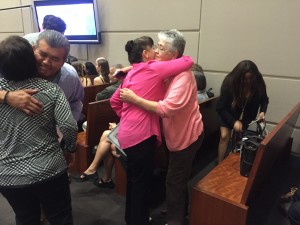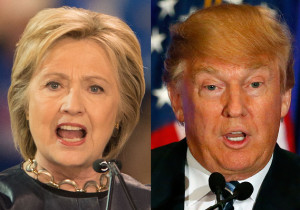“Are immigrants good for the economy?
“In the debate over immigration reform, we come back to this argument again and again. The answer is still, ‘Yes.’”
——-
She had the appearance of a middle school student, but the poise of a seasoned diplomat. When she stepped behind a big podium in an imposing, high ceilinged federal courtroom in Tucson, Arizona last week she nearly disappeared, but when she spoke her voice was strong and eloquent. When she finished her brief speech we smiled and dabbed the tears.

The young girl told the crowd in the courtroom that she wanted her mother, a newly naturalized American citizen, to know how very proud she was of her. What a moment – a young American proud that her mother had joined her as a citizen. The young girl’s name? America. No kidding.
During a time that has featured far too many unAmerican moments, it was the most American moment imaginable.
Hundreds of thousands of new Americans along with their families and friends, will experience this year what I experienced last week in that Tucson courtroom – a renewal of the promise and strength of the United States of America.
Forty-nine new American citizens raised their right hand last Friday morning and reinvigorated the American experiment. They were from twenty countries, including Azerbaijan, Afghanistan, Iraq, Canada, China, Mexico, Somalia, Eretria, the Philippines, Germany, Sierra Leone, India and the United Kingdom. I came away thinking the new Americans had a better grasp on what it means to be a citizen, including what really participating in our democracy and our communities means, than many of us who were born here and tend to take all we have for granted.
When Federal Magistrate Jacqueline Rateau completed the formal oath she invited those new citizens who wanted the opportunity to say something to their friends and families to approach the podium . Several accepted, including a young fellow born in Somalia, a nation on the horn of Africa, crippled by anarchy and plagued by sectarian strife, where the male life expectancy in 50. This new American citizen promised to continue to be involved in his community in order to make a difference. You believed him.
A scholarly looking native of China, possessed of a PhD in physics, said simply that he wanted to live in the United States because of “freedom, equality and justice.” How American.
I found myself longing to hear all their stories, what they risked to be here, what they left behind, their aspirations, dreams and fears. Despite what some of the “know nothings” running for the highest job in the land are saying these days, we do not make it easy to embrace the dream of America. It takes time to become a citizen, requires dogged persistence and often the help of a network of friends, family, churches and employers. Your background is checked and you must master details of the American system, while also promising to defend the country “against all enemies foreign and domestic.” You become a citizen by wanting to become a citizen.
Just because it’s a cliché doesn’t mean that it’s not true: the United States, more than any other place on the planet, is a nation of immigrants, upwards of 42 million immigrants in the country according to the last census. Other than the only real Americans – Native Americans – we all came from somewhere else and that is both the strength and the promise of each new generation, a gift that constantly renews and builds a better country.
——-
“The interaction of disparate cultures, the vehemence of the ideals that led the immigrants here, the opportunity offered by a new life, all gave America a flavor and a character that make it as unmistakable and as remarkable to people today as it was to Alexis de Tocqueville in the early part of the nineteenth century.”
― John F. Kennedy, A Nation of Immigrants
——-
Do we need another loving, united American family that once called Mexico home? Are we better off when a Somali-born man commits himself to a new and better life in Arizona? Will that PhD born in China add to the economy and the world’s knowledge? In our hearts and in our heads we know the answer. We know what’s good for America and ourselves. Unfortunately, that knowledge is not always reflected in our politics.
If you ever doubt the wisdom of an America that embraces the strength that comes with diversity and inclusion, and if you ever wonder about the benefits of American citizenship, attend a naturalization ceremony in your community. The 49 new Americans I met last week add strength and character to a nation that needs all the strength and character it can possibly attract.
Each of those 49 people from twenty different countries longed to be, dreamed to be, an American citizen. We should thank our lucky stars that they want to join the rest of us. My own friend – warm, intelligent, worldly and kind – celebrated with a group of her fellow citizens, happy to be an American and happy to acknowledge it was worth the effort to become one. If anything, we were even happier – for her and for us.

